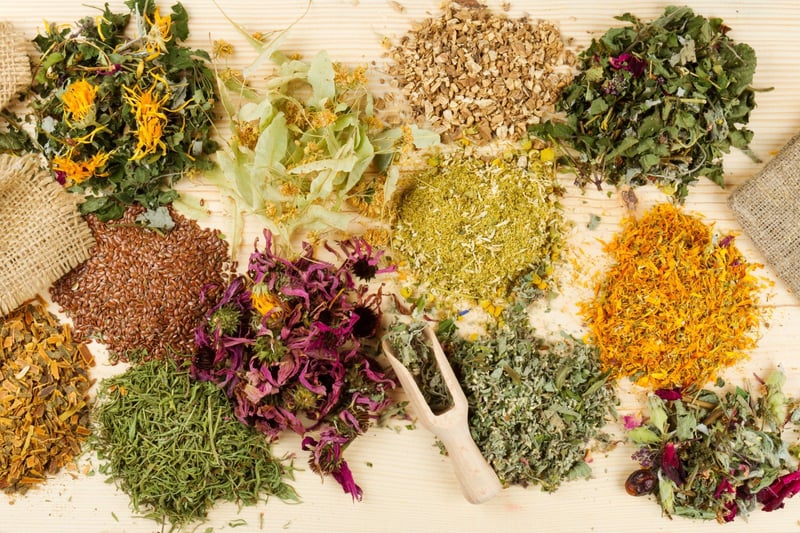
New research offers hope for animals, as plant-based alternatives accepted by traditional Chinese medicine market
Press release
Today World Animal Protection and the Wildlife Conservation Research Unit (WildCRU), University of Oxford, are releasing evidence that provides new insight into the use of wildlife as Traditional Chinese Medicine (“TCM”) - with hopes of a solution that could protect wildlife from suffering and extinction.
One of the key drivers of the global wildlife trade is the demand for animal parts in traditional medicines. This research aimed to identify the most effective ways to reduce demand for animal-origin medicines.
The joint Chinese / British team of scientists examined different facets of “TCM”, as well as international (CITES) trade records. Their findings, combined with interviews with thousands of TCM consumers and doctors across China, were shared with the international scientific community via an international online symposium today, to highlight the potential for redirecting consumer demand away from animal-origin medicine, and towards plant-origin medicines that already constitute the majority of TCM preparations.
Key findings include:
- “TCM” comprises many different facets, including official TCM (as practised by doctors in TCM hospitals and large clinics), wider Chinese Medicine, and a market for novel medicines and health supplements.
- Official TCM currently includes 70 different animal species. From 2008-2018 China exported 23 metric tonnes of medicine derived from these species.
- Wider Chinese Medicine can involve 2341 animal species. Between 2008-2018 China exported more than 5 metric tonnes of medicines derived from some of these species.
- Between 2008-2018 China imported 36 different species with no prior textual evidence of use for official TCM or wider Chinese Medicine. These included more than 2,000 kg of seahorse, and over 21,000 kg of pangolin scales and skins.
But there is potential for change:
- We can work with the official TCM community to substitute plant-origin medicines for the relatively few animal-origin medicines they use.
- Consumers will embrace such plant-origin alternatives: 89% of regular consumers of TCM said they would be willing to buy plant-origin substitutes instead of animal-based medicines.
- 80% of Chinese TCM doctors* are willing to prescribe plant-origin alternatives – with the more experienced doctors being more willing to do so.
- When TCM doctors became aware of how willing consumers were to consume plant-origin medicines, their willingness to prescribe these almost doubled.
- Chinese TCM doctors perceived plant-origin medicines to be safer than animal medicines, less of a financial burden for patients, better tasting and effective.
Gilbert Sape, Wildlife Campaigner, World Animal Protection said:
“The research shows that Traditional Chinese Medicine can transform to a fully plant-based, sustainable and cruelty-free industry. TCM consumers, professionals, scholars and government agencies must unite to make this happen – and we stand by with them to facilitate this transition.
“World Animal Protection is already taking leadership - bringing key TCM stakeholders together to share knowledge, explore conflict resolutions and work together to find common solutions. This alliance will play a critical role in shifting the world from animal-based materials to plant-based alternatives.”
Professor David Macdonald, Director, WildCRU University of Oxford said:
“Western wildlife conservationists state that practices within Traditional Chinese Medicine can drive the unsustainable consumption of biodiversity, and cause animal welfare issues. Our research clearly shows that indeed a large number of wild animals across a diverse range of species are involved.
“But the fact that many regular consumers of TCM are likely to be happy to replace animal-origin medicines with sustainable plant-origin alternatives, and that the majority of their doctors are also likely to be happy to prescribe plant-origin alternatives, suggests that redirecting consumer demand could be a successful sustainable strategy. A win-win for both the conservation and welfare of wild animals for TCM.”
World Animal Protection is partnering with Chunyu Doctor (a leading internet medical care company in China) to mobilise TCM practitioners to become wildlife-friendly. This campaign has already secured the support of hundreds of Chinese doctors who have pledged to stop prescribing wildlife medicine. The global animal welfare organisation is also working with other partners, including Health China, to engage and move more doctors.
World Animal Protection and partners are now calling on relevant government agencies, as well as other stakeholders in the traditional medicine market, to support further development and promotion of herbal substitutes to wildlife in medicines.
ENDS
Notes to the editor:
- For more information on the symposium, please visit https://herbalsubstitutes.org/symposium/
- * Survey of 1,000 Chinese doctors who practice TCM daily
- ** Survey of 2,000 TCM users in China and Vietnam
- This research was carried out by a number of researchers based at several academic institutions and Non Governmental Organisations including: WildCRU, University of Oxford, World Animal Protection, The Three Gorges University, and China West Normal University.
- Research findings were shared at an international online research symposium entitled “Herbal Substitutes for Wildlife-Based Traditional Medicine” on Tuesday 30th November 2021. Published research papers can be viewed here:
The research shows that Traditional Chinese Medicine can transform to a fully plant-based, sustainable and cruelty-free industry.